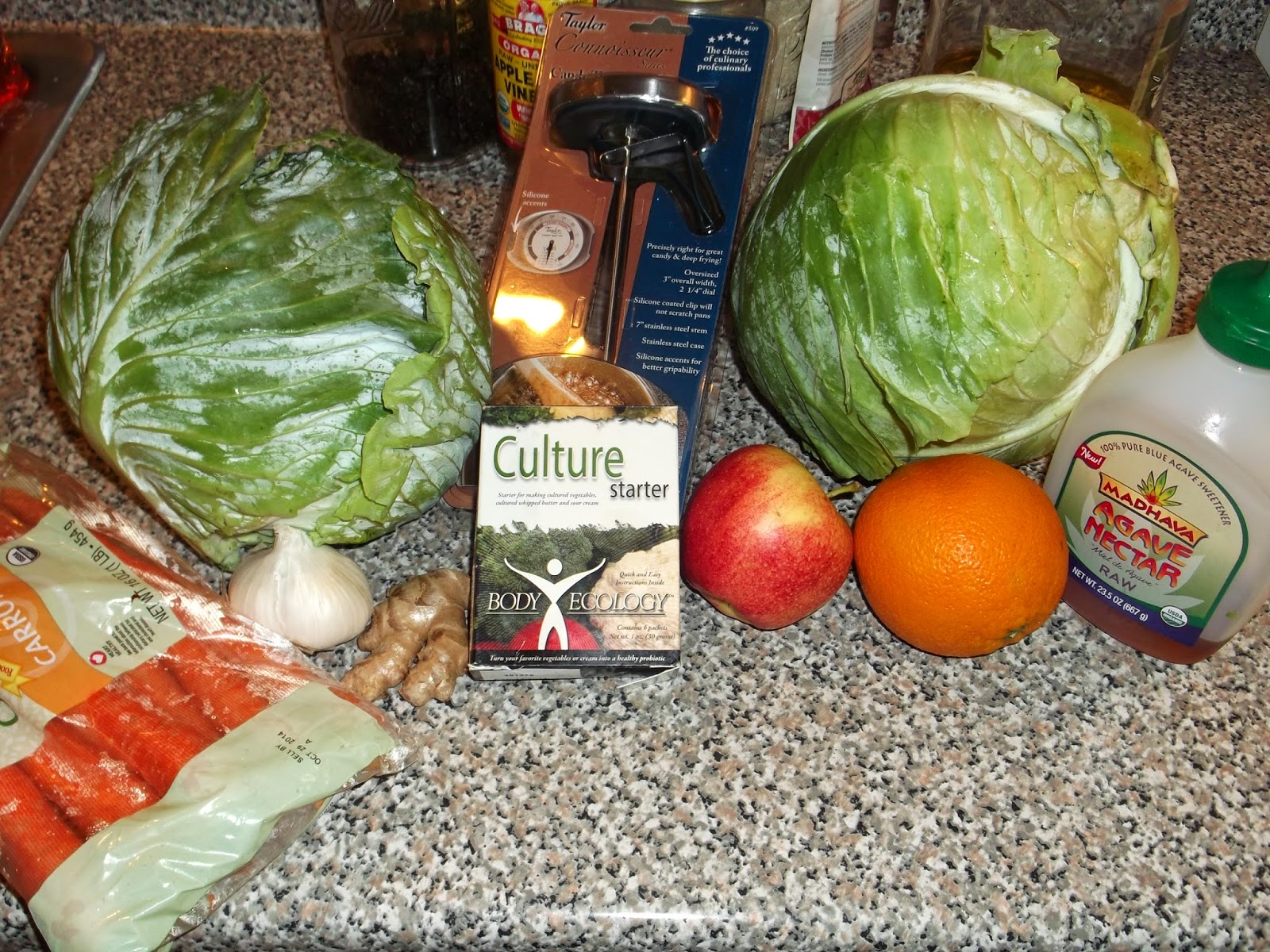Why ferment your foods?
1. They improve digestion.
2. They restore proper bacteria in the gut.
3. They are rich in enzymes.
4. They help us absorb the food we are eating.
5. It's inexpensive.
6. Fermentation improves the flavor of your food.
The simplest way to make cultured vegetables from scratch is with cabbage and sea salt. This is an easy version: Making Sauerkraut.
I had one packet of Body Ecology's Veggie Culture Starter left. I decided to use it before it expired.
Cultured Vegetable Starter contains the following beneficial
bacteria:
Lactobacillus plantarum
Lactococcus lactis ssp. lactis
Lactococcus lactis ssp. cremoris
Lactococcus lactis ssp. diacetylactis
Leuconostoc mesenteroides ssp. cremoris
Lactobacillus kefyr Non-GMO dextrose as a carrier (consumed
during fermentation)
One packet can be used for seven consecutive fermentations.
(And this is not an ad for Body Ecology or the Wild Fermentation site...only sharing information.)
First, put 1/2 cup of water, the culture starter, and a sugar source to feed the culture, in a small pot.
Heat to 90 degrees. Let sit for 20 minutes or longer. I bought candy thermometer, which I saw once I ripped it open, started at 100 degrees. I used my fingers to gauge. Ninety degrees is warm to the touch. This is going to be your brine.
While the brine is sitting on the stove, cut up your vegetables. I used my food processor to chop up everything.
Put all the veggies in a bowl. This is the carrot, cabbage, garlic, and ginger mix.
Take 2-3 cups of chopped cabbage, 1 cup water, the brine, and blend all together.
Add that liquid mixture to your veggies. Mix well with a spoon until it's all juicy
Pack into a ceramic or glass jar. The smell will stick to a plastic jar. And plastic chemicals can leech into your food. It's just best to stay with ceramic or glass. Plus, glass is pretty, and you can check on your veggies as they ferment without opening the jar. Above is cabbage, apples, and orange. See the cabbage rolls on top? I use them to pack the veggies down. Cultured food expands during the fermentation process. Allow 2 inches between the veggies and lid.
This is the cabbage, carrot, ginger, garlic veggies. I put all of my jars in my storage room, and covered with a towel. The hotter the room the faster they will ferment. The cooler the room, the slower they ferment. Give it 3-7 days in the spring, summer, and fall. Seven to ten days in the winter depending where you live.
I can smell the garlic without even opening my jars yet. I'll show you what they look like when the veggies are ready!
Love,
Althea
◦









No comments:
Post a Comment